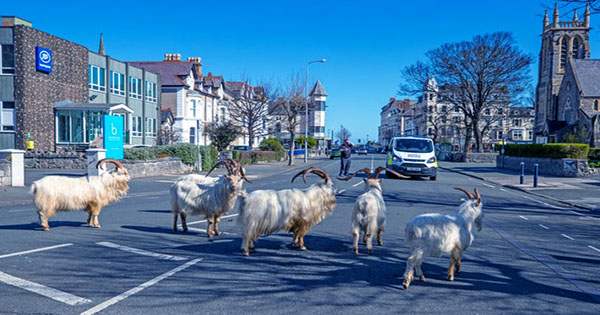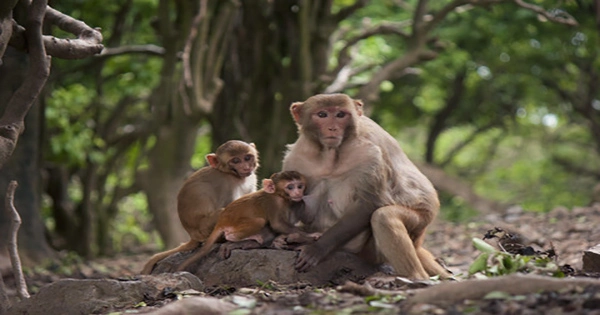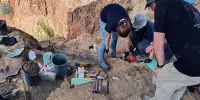Last year, a growing number of goats attacked a Welsh coastal town, taking advantage of the calm situation to create a COVID-19 lockdown. Their innovations have earned them a 15-minute viral reputation but it looks like the story does not end here. Goats now outnumbered after missing their annual contraceptive dose due to epidemics. The Kashmiri goat population lives in the rocky landscapes of the Great Worm along the north coast of Wales, but often travels to the town of Llandudno in search of food in the winter and spring months.
According to Conway County Borough Council, the goats were originally a gift from a local lord to someone other than Queen Victoria, however, the goats fled the estate about 100 years ago and have been roaming peacefully in a wilderness ever since. By 2000, there were 220 goats in the herd. Although their relationship with the locals was generally cordial, concerns began to rise about their growing population. The local council decided to gradually reduce and control the size of the animal by transferring the animals to other sites in the UK and using a contraceptive vaccine for birth control.
Everything is going well until the COVID-19 epidemic hits. In March 2020, the goats became viral celebrities after they were seen throwing stones around Llandudno, due to sitting at home and the social distance system (the goats didn’t do it) seems to see a lack of people on the streets. A year later, spring has just begun to peek over the clouds and the goats are back in town, BBC News reported. It is suspected that there may be more than ever before, as the goat population could see the kid as they missed last year’s contraceptive job.
“We try and control numbers in the Great Arm and we do it through a contraceptive program that involves all of them around it, some effort is needed – lots of volunteers come together to do this and see the female goats,” said Conway County Borough Council. CLR Lewis Emery told ITV News.
“But obviously we had no way of doing that last summer, so they’ve been breeding like goats.” The next chapter remains unwritten, but it is to hope that this flock will gradually move away from the city as natural pastures and social distance systems become readily available.
















